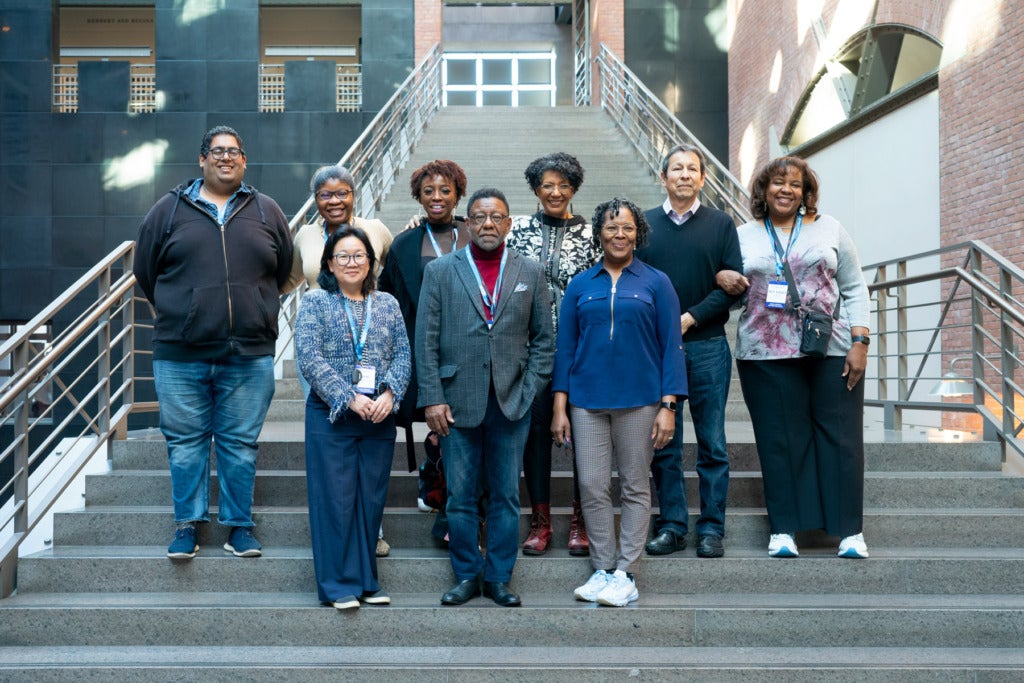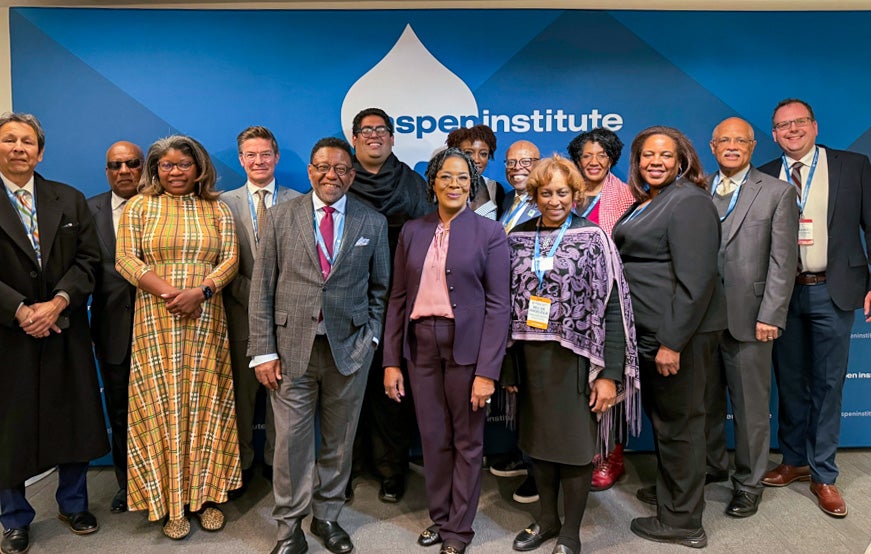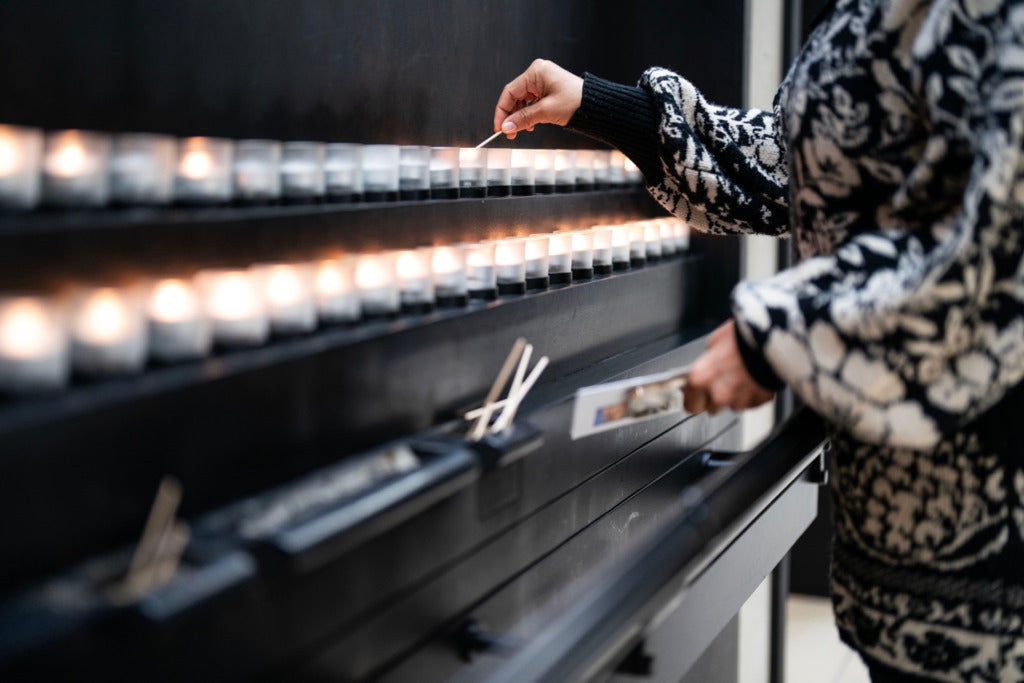
Earlier this month, Aspen’s Religion and Society Program and the Racial Justice and Religion Collective organized a series of events in Washington, D.C. for members of the collective and invited guests. We were thrilled to have a week of engagement that included meeting with policymakers, museum visits, intentional conversation and time to study the intersection of race, religion, and public policy. Our schedule also allowed for members of the collective to discuss and reflect on what was learned and to share one seminal aspect of their work at the intersection of racial justice and religion within their respective organization. Our time together culminated with dreaming, visioning, and planning our collective work upcoming this year.
On March 19, we organized our inaugural Congressional Forum on Capitol Hill. Throughout the day, members of the collective and guests from a range of religious and civic groups heard from members of Congress—Rep. Emanuel Cleaver (MO-5), Sen. Chris Murphy (CT), and Rep. Sheila Jackson Lee (TX-18)—who thoughtfully shared reflections on faith, lack of social connection within society, a shared civic life, and public policy. Helena Bottemiller Evich, a food policy reporter, spoke on under-discussed issues, including the racialization of the Supplemental Nutrition Assistance Program and similar programs. Karim David Marshall of the Environmental Protection Agency shared about his work on environmental justice and his time in local government, working with faith and civic groups to promote healthier communities. Cameron Joseph of The Guardian and Jacob Rubashkin of Inside Elections separately discussed the intersection of religion and political life. Dr. Ryan Burge, a professor at Eastern Illinois University and a contributor to Christianity Today, spoke about the demography of faith communities and issues related to shrinking participation in houses of worship. The speakers gave us all much to consider, and we are appreciative of all of them.

On March 20 and 21, we visited two museums that engage deeply with the ideas of race, religion, and public life: The National Museum of African American History and Culture, and the U.S. Holocaust Memorial Museum. At the African American History Museum, members of the collective were given a private tour by Dr. Teddy Reeves, a curator of religion at the museum, and treated to a screening of “gOD-Talk,” a film exploring how millennials interact with religion and the transformative nature of community, the internet, and space. The next day, we were able to tour the Holocaust Museum’s permanent exhibition and a special exhibit on American attitudes toward the Holocaust as it was happening. Members of the collective were able to discuss their experiences and interact with curators, one of whom specializes in how smaller religious groups acted during the Holocaust. Looking back at the events informed the collective’s reflections on contemporary circumstances. We also watched “Repairing the World: Stories from the Tree of Life,” on the attack on a synagogue in Pittsburgh in 2018 and its aftermath. The film reminded us how various faith and civic communities bonded together to address hate and help a community recover and heal, and provided a fresh motivation for our work together.

In addition to these educational opportunities, our collective had much time to reflect deeply on what was learned and to share stories of their work with each other. Over meals and in structured times, we learned more about their lived experience.
Members of the collective shared about how they had been affected by the first year of being in the collective and what events they hope to see in the future. One impact that all shared was that this community of leaders was able to dialogue about these complex issues and challenges, even from different perspectives and lenses. They were able to deeply hear each other and empathize with each other’s lived experiences The collective has experienced firsthand the importance of multifaith work, and hopes to convene more over the next year, visiting communities of different faith traditions. They are aware of the many challenges facing our country and our communities, and hope to promote a pluralistic, democratic society that meets the physical and emotional needs of our people.
We are grateful to Luce Foundation, Wayfarer Foundation, and Faith Counts for their support for this week’s events and other Religion and Society Project work!

